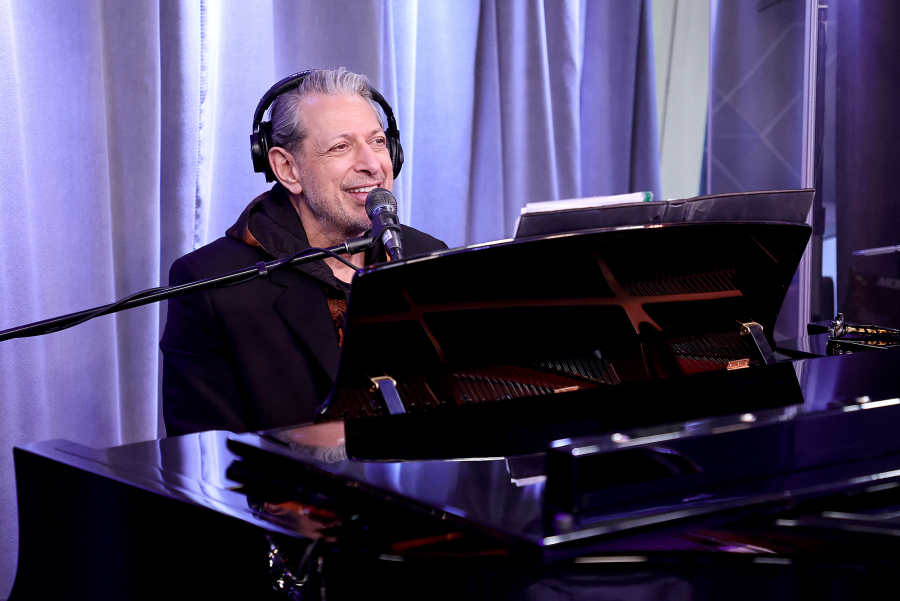ANAHEIM, Calif. — For Jeff Goldblum, the first step to founding the Mildred Snitzer Orchestra came when the Fly and Robocop discovered a mutual love of jazz.
“I usually say it’s been 30 years now – let me see,” Goldblum says of the jazz band he’s led between movie and TV roles for years. “When did I do ‘Buckaroo Banzai?’ Because that’s when Peter Weller and I started to play.”
After meeting on the ‘80s cult movie, Goldblum, who went on to play the title role in “The Fly,” and Weller, who did the same in “Robocop,” soon decided to make music together.
“He’d come over to my house and just play through the fakebook,” Goldblum says of trumpet-playing Weller. “And then he said, ‘Hey, I think we can play out and about. We got a guitarist and we started to play right here at Sunset Plaza, at Le Petit Four, on Sundays for brunch.



